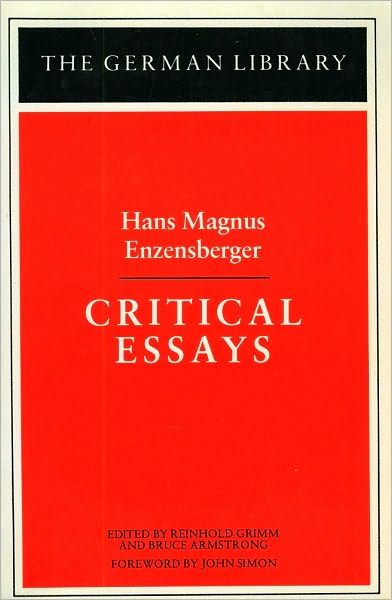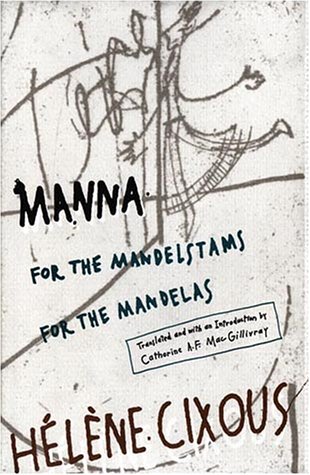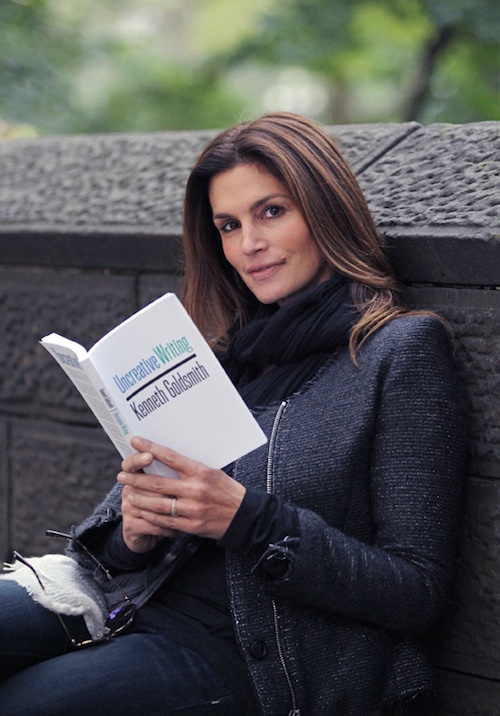Hans Magnus Enzensberger: Critical Essays (1982)
Filed under book | Tags: · art, language, media theory, poetry, politics, theory

Among the twelve scintillating essays by a German poet, translator, critic and playwright presented here are “The Industrialization of the Mind”, “Poetry and Politics”, “Constituents of a Theory of the Media”, “Toward a Theory of Treason”, “Tourists of the Revolution”, “A Critique of Political Ecology” and “Two Notes on the End of the World”.
Edited by Reinhold Grimm, Bruce Armstrong
Translated by Michael Roloff, Stuart Hood, Judith Ryan, David Fernbach and Hans Magnus Enzensberger
Foreword by John Simon
Introduction by Reinhold Grimm
Publisher Continuum, New York, 1982
German Library series
ISBN 0826402585, 9780826402585
250 pages
Review (Heinz D. Osterle, The German Quarterly, 1986, in German)
Review (Kathy Acker, Artforum, 1983, very low resolution)
Hélène Cixous: Manna: For the Mandelstams for the Mandelas (1988/1994)
Filed under book | Tags: · biography, language, literature, poetry, politics, resistance

“They didn’t know each other, but they knew the same suffering.
A Russian Jewish poet who died in exile in Siberia; a South African political leader who survived his banishment to prison: The two men, Osip Mandelstam and Nelson Mandela, so far apart in time and space, are brought together in this story, their shared destinies unraveled in light of the Jewish and African diasporas.
In Manna, Hélène Cixous, a writer associated with the notion of écriture féminine and a major figure in Continental feminist practice during the 1970s and early 1980s, continues her disruption of the orthodoxies of politics and social order through the liberating use of poetic language. In this act of willful writing, by turns lyrical and intense, she links her two distant subjects through the common first syllables of their names, the dates of their respective exiles, and the women, Nadezhda Mandelstam and Winnie-Zami Mandela, who disclose and restore their partners’ lives through language.
For Cixous, politics is approached most openly and freely through poetry; no social change occurs without linguistic change. In Manna her poetic language mediates the historical, political, and personal narratives of Mandelstam and Mandela (two cores lodged in the heart of the world) to produce a new sense of individual tragedy and cultural possibility. An act of emancipation, exhilarating in the way it subverts the master texts of social and political power, this strange and beautiful book releases its subjects-and its readers-from the limited language of constraint and exile.”
First published as Manne aux Mandelstams aux Mandelas, Les Editions des Femmes. Paris, 1988.
Translated and with an Introduction by Catherine A. F. MacGillivray
Publisher University of Minnesota Press, 1994
ISBN 0816621144, 9780816621149
294 pages
via leninbert
Review: Clare Cavanagh (Slavic Review, 1997).
Comment (0)Kenneth Goldsmith: Uncreative Writing: Managing Language in the Digital Age (2011)
Filed under book | Tags: · appropriation, authorship, conceptual writing, concrete poetry, data, language, literary theory, literature, poetry, technology, text, uncreative writing

“Can techniques traditionally thought to be outside the scope of literature, including word processing, databasing, identity ciphering, and intensive programming, inspire the reinvention of writing? The Internet and the digital environment present writers with new challenges and opportunities to reconceive creativity, authorship, and their relationship to language. Confronted with an unprecedented amount of texts and language, writers have the opportunity to move beyond the creation of new texts and manage, parse, appropriate, and reconstruct those that already exist.
In addition to explaining his concept of uncreative writing, which is also the name of his popular course at the University of Pennsylvania, Goldsmith reads the work of writers who have taken up this challenge. Examining a wide range of texts and techniques, including the use of Google searches to create poetry, the appropriation of courtroom testimony, and the possibility of robo-poetics, Goldsmith joins this recent work to practices that date back to the early twentieth century. Writers and artists such as Walter Benjamin, Gertrude Stein, James Joyce, and Andy Warhol embodied an ethos in which the construction or conception of a text was just as important as the resultant text itself. By extending this tradition into the digital realm, uncreative writing offers new ways of thinking about identity and the making of meaning.”
Publisher Columbia University Press, 2011
ISBN 0231149913, 9780231149914
272 pages
Interviews with author: CUP blog (2011), Mark Allen (The Awl, 2013).
Reviews: Andrea Quaid (American Book Review, 2011), Sam Rowe (Full Stop, 2011), Stephen Burt (London Review of Books, 2012), Amelia Chesley (J Electronic Publishing, 2012), Michael Jauchen (HTMLGiant, c2012), Grant Matthew Jenkins (James Joyce Quarterly, 2012), Andrew McCallum (English in Education, 2013).
Commentary: Special section of American Book Review dedicated to uncreative writing (ed. Doug Nufer, 2011).
HTML (added on 2016-03-01)
EPUB (updated on 2015-10-9)

